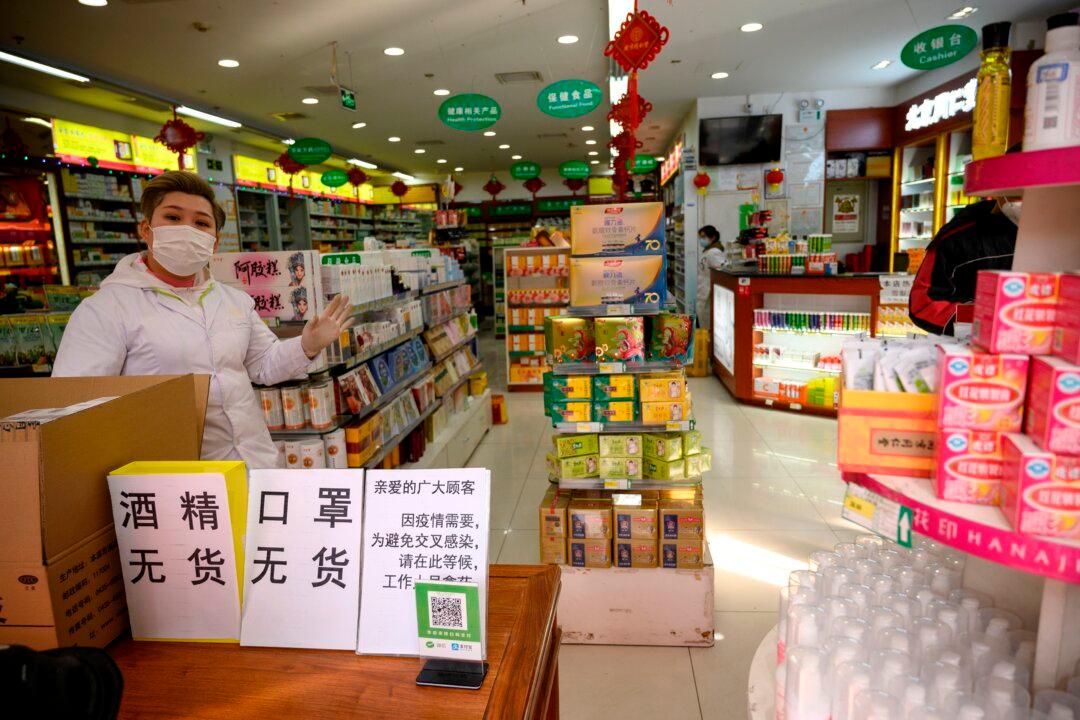WASHINGTON—The coronavirus outbreak has disrupted the U.S. pharmaceutical industry’s global supply chain that is largely dependent on China, calling attention to a dangerous level of dependence by the United States on this global competitor.
China is the dominant supplier of thousands of medicines found in U.S. homes and hospitals, from antibiotics to chemotherapies, from HIV/AIDS drugs to antidepressants to painkillers.





